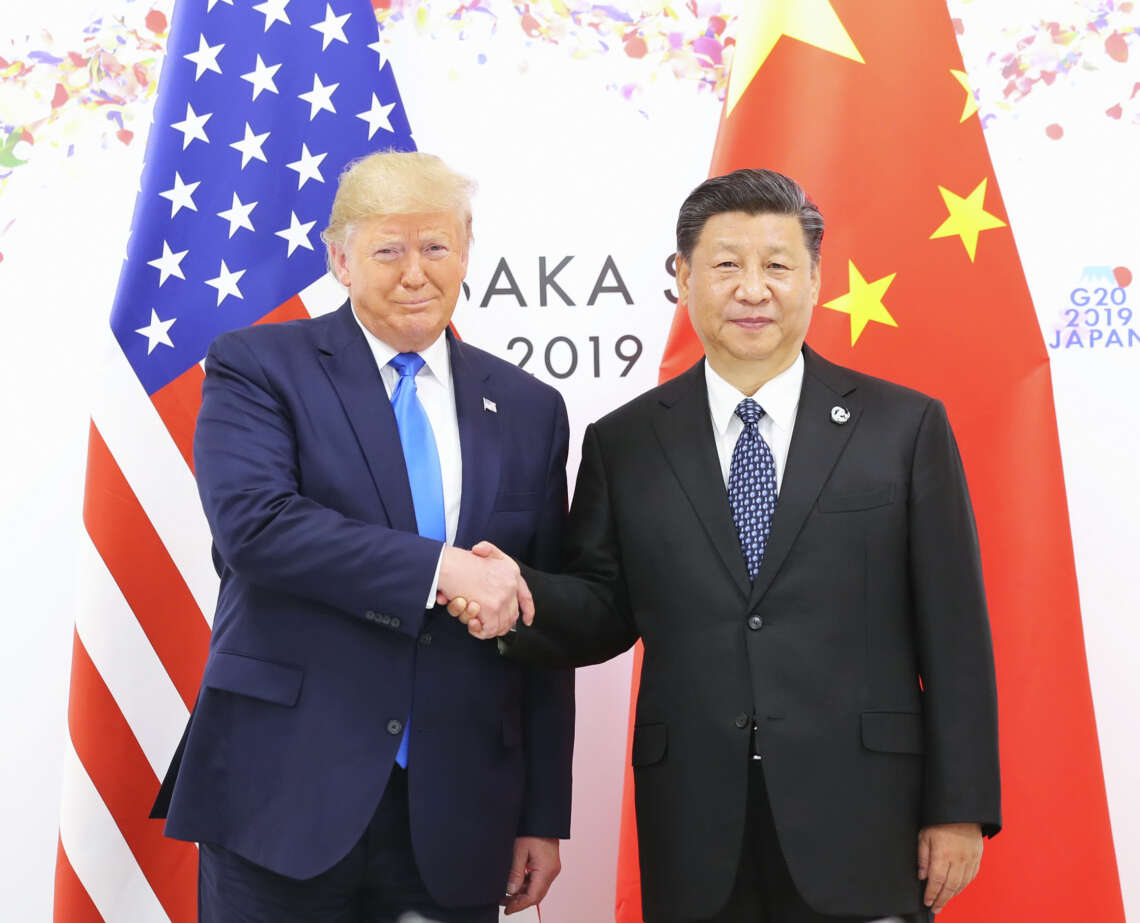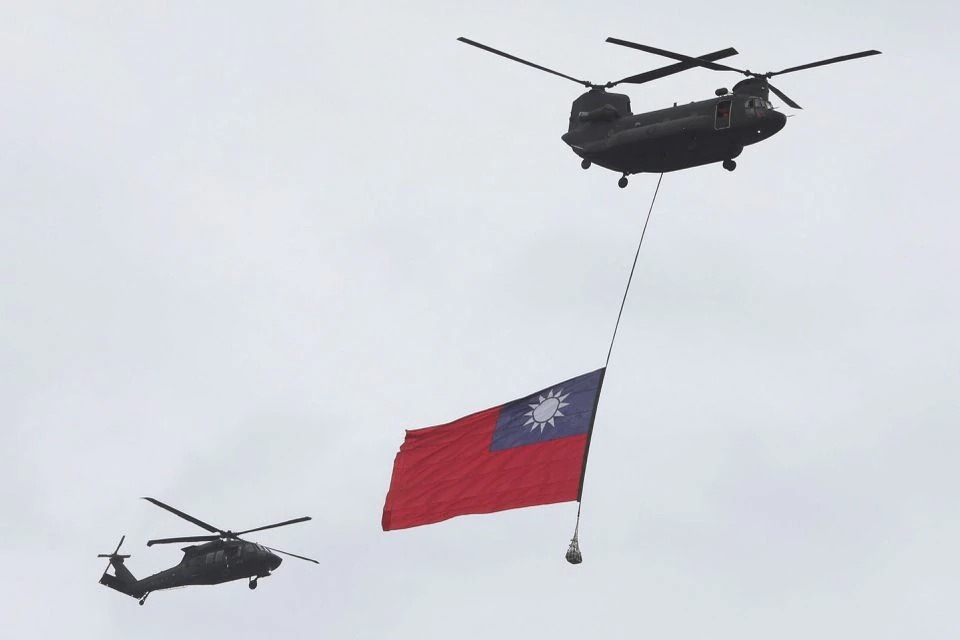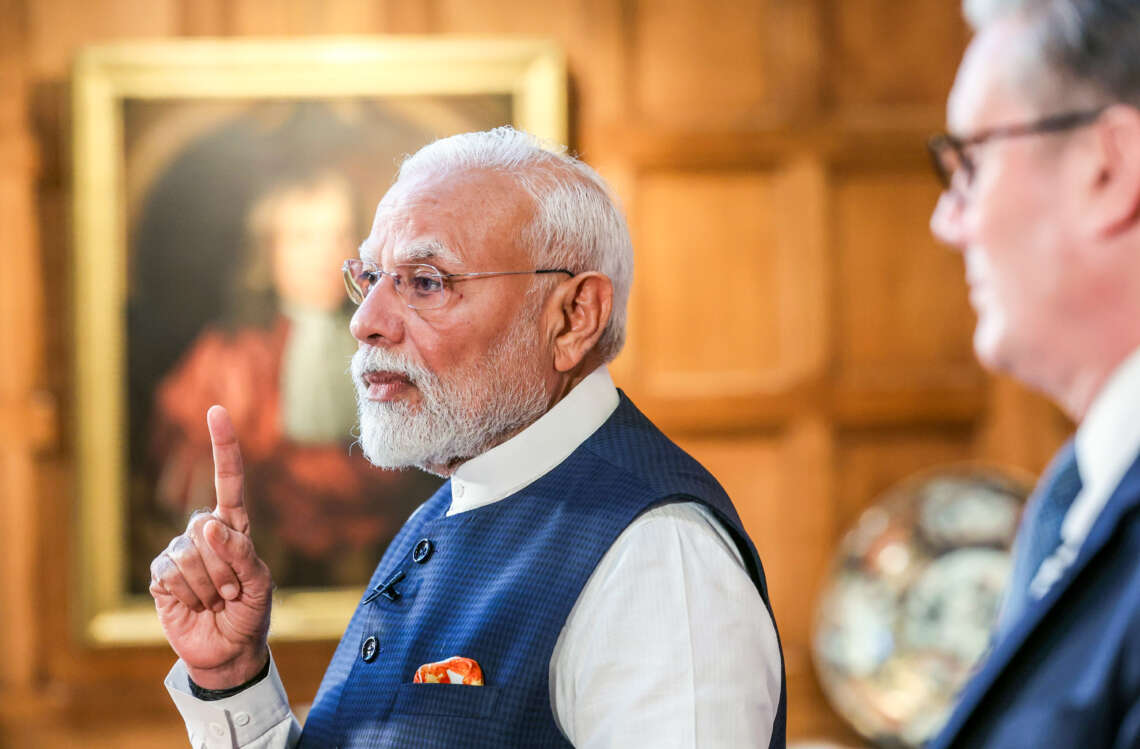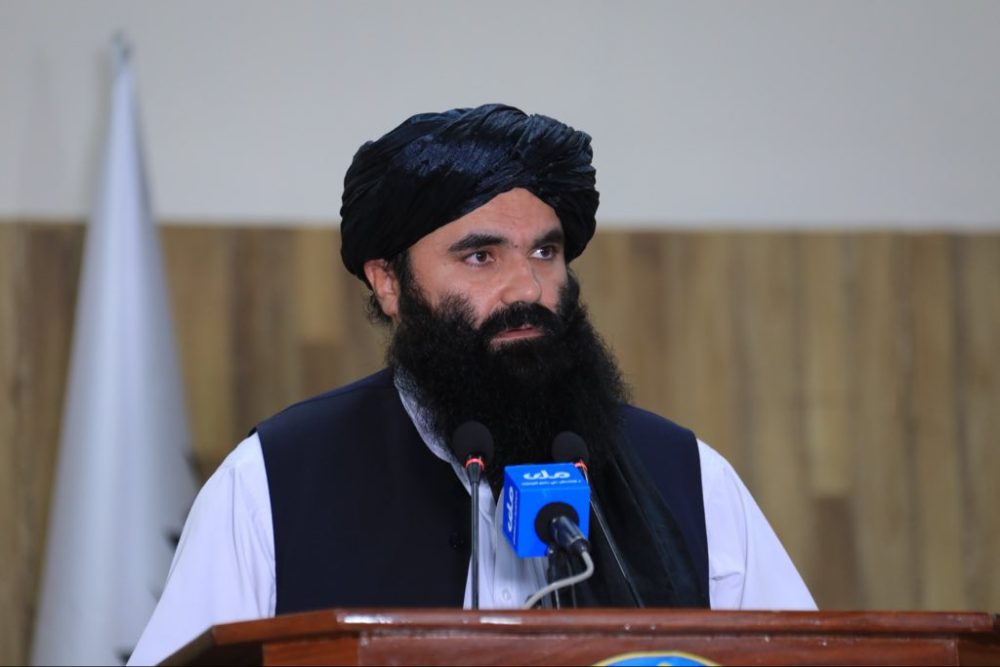Analysts say tariff war has led to a self-inflicted blow to America’s regional standing, inadvertently boosting Beijing’s diplomatic influence….reports Asian Lite News
Chinese President Xi Jinping has emerged as one of the world leaders most visibly pleased by Donald Trump’s return to the White House, with his recent appearances at the Shanghai Cooperation Organisation (SCO) summit in Tianjin and a lavish military parade in Beijing radiating confidence.
As The Mainichi notes, Xi appeared buoyed by the presence of several Indo-Pacific leaders — including those of India and Vietnam — at both events. Many of these nations were previously courted by Trump’s predecessors as strategic counterweights to China, but have grown wary of Washington’s aggressive tariffs and threats under Trump’s renewed presidency. The result, analysts say, is a self-inflicted weakening of America’s standing in the region, inadvertently enhancing Beijing’s diplomatic clout.
While some countries like Indonesia and Malaysia have long sought to balance ties with both Washington and Beijing, the turnout also included China’s closest authoritarian allies: Russia’s Vladimir Putin, North Korea’s Kim Jong Un, and Iran’s Mazoud Pezeshkan. According to The Mainichi, their attendance underscored how Trump’s divisive policies have made it easier for Xi to frame China as a champion of free trade and international stability — despite its record of protectionism, maritime aggression in the South China Sea, and backing for Russia’s war in Ukraine.
Observers caution, however, that this show of strength masks deep vulnerabilities. Russia remains bogged down in Ukraine, faces dwindling war funds, and is banking on lower oil prices; Iran’s military reputation has suffered heavy blows from Israeli strikes; and North Korea, though profiting from arms sales to Russia, remains economically dependent on China. “They looked like vassals paying tribute to their Chinese overlord,” The Mainichi reported.
India’s Prime Minister Narendra Modi’s presence stood out most. His participation signalled, in The Mainichi’s view, how far Trump has pushed India away from the United States within just eight months back in office — undoing decades of US efforts to build India as a counterbalance to China. Yet Modi’s message was that India will remain fiercely independent, resisting domination by either Washington or Beijing.
Far from heralding a new China-led order, Xi’s spectacle reaffirmed two realities: the tightening Sino-Russian axis — highlighted by plans for a new Siberian gas pipeline — and America’s growing isolation from its traditional partners. This, analysts warn, could tempt Xi to probe US resolve in the Indo-Pacific if he perceives Washington becoming consumed by domestic strife and slowed by Trump’s protectionist policies.
According to The Mainichi, any Chinese attempt to exploit perceived American weakness could start with escalated pressure on the Philippines in the South China Sea — potentially testing the US-Philippines defence treaty — or, more dangerously, a move on Taiwan. While Xi is likely to remain cautious, experts warn that if he concludes this is a fleeting window to act, the consequences could be catastrophic.














